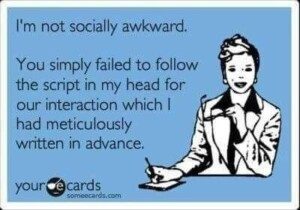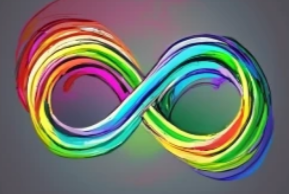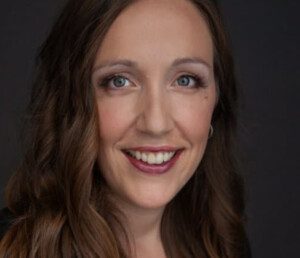If you’ve ever had the following thoughts, this could be a sign of autism. Don’t let autism sink under the radar. These thoughts are very telling.
I’m on the autism spectrum, having been clinically diagnosed in spring of 2022.
It’s astounding how only in middle age it dawned on me that I could be autistic, despite having had specific recurring thoughts throughout my life — thoughts that just don’t seem part of being neurotypical.
Below are the thoughts that I — and 11 other autistic people, all diagnosed in adulthood — have had.
Very oddly, these thought processes never made me consider that I might be autistic!
Some or most may resonate with you. If you’ve frequently had similar thoughts and reflections, you’ll want to consider the possibility that you’re autistic – especially if you’ve experienced several other traits such as:
• Scripting in your mind future anticipated conversations with real or sample people, then rehearsing them over and over in your mind or even out loud.
• Unusual interests and hobbies that you’re intensely passionate or “obsessed” about.
• Sustained repetitive movements such as rocking, swaying, bouncing your legs together, wringing or flapping your hands, clicking your teeth, nibbling on your knuckles, toe walking, spinning, finger fiddling with or gnawing on objects, etc.
• Difficulty making or keeping friendships.
• Feeling that eye contact requires too much conscious energy or is sometimes distracting during conversations.
Thoughts that May Indicate Autism Spectrum Disorder
“I can’t believe I’m one of them. I can’t believe I’m the same species.”
I’d think this from time to time while resting in between sets at the gym, looking at all the people around me.
“Wouldn’t it be great if the majority of people thought like the Vulcans on Star Trek?”
“If Vulcans existed I’d prefer to be around them than humans any day.”
“Socializing is a waste of time.”
“So, autistics miss social cues? I don’t miss social cues. It’s the other way around. People miss MINE.”
“I’m too weird to ever get a serious boyfriend.”
“I was born in the wrong era. I wonder if 10,000 years ago, more people thought like me.”
“I wonder if half a million years from now, most people’s minds will be like mine.”
“I can’t just automatically love someone just because they’re my niece or nephew.”
I actually spoke this to a friend, Mike. He wasn’t a close friend (according to my definition), but more of a buddy climbing partner with whom I got along great and had had many interesting conversations.
One day he was over my condo and somehow the topic of nieces and nephews came up.
He was troubled that I didn’t love any of my nieces and nephews. I’d been upfront and honest with him in that conversation, and I could clearly tell it wasn’t sitting well with him.
I kept trying to explain that I couldn’t just automatically love someone just because of a genetic relationship, and that in order to love them, they’d have to be a regular, recurring part of my life—and my nieces and nephews had always lived out of state, limiting our contact.
He said he automatically loved his nieces and nephews, and kept disagreeing with my position. I never heard from him again after that.
“How could she love the baby?”
I’d often wonder this in reference to women loving their unborn child. How could they love a person they’d never met, never seen, never held?
I couldn’t understand how a woman (or man) could be devastated over a miscarriage when they had never interacted with the unborn baby in physical and visual form.
“How do you love someone you’ve never seen?”
When I read about women who’ve had miscarriages, I don’t feel anything.
But if I read about a German shepherd that died in a house fire, I’ll definitely feel something for that dog’s owners.
Why? Because I once had a magnificent white German shepherd in my life who died before age nine from a brain tumor.
It’s common for autistic people to feel empathy for another person only when the situation is similar to what the autist had once experienced.
Thoughts 11 Other Autistic People Have Had
“I feel like an outsider looking in all the time. I just don’t understand them.”
— Brad Biren, tax and elder law attorney, diagnosed with autism at 35.
“What am I supposed to do with my eyes when there’s another person walking towards me?”
“How many times am I supposed to nod during this conversation?”
— Victoria Jones, educator and entrepreneur, diagnosed with autism at 30.
“Man oh man, if I actually acted out some of the things I do in my head — people would think I was nuts. I’m glad I can keep it inside.”
“Why can’t people just follow the rules? They’re there for a reason!”
— Justin Haley Phillips, writer and editor, diagnosed with autism at 36.
“It feels like everyone else got an instruction manual to socializing when they were born, and someone forgot to give me a copy.”
“Is this person being super friendly because they genuinely like me, or are they just trying to seem polite?”
“Oh God, is this facial expression appropriate for this situation? I have no idea how to react to what this person just said to me!”
“I wish people would stop trying to make friendly small talk in public. I don’t want to talk to you, you don’t care how my day is going, and we will probably never see each other again. What is the point of this?”
— Marena Bernard, professional model, 20, diagnosed with autism at 19.
“I feel afraid to speak up in social settings because I’m frequently being judged as ‘kooky.’”
“I wish I knew what was wrong with me. I’m just different.”
— Jason San Souci, drone scientist, 43, diagnosed with autism at 42.
“What brain part is broken or missing that makes me so weird?”
“What does everyone else understand about peopleing that I’m not getting?”
— Jessica Medina, 30, licensed marriage and family therapist, diagnosed with autism at 29.
“Is my face showing what I want it to show?”
“How long do I have to look at their eyes?”
— Clarissa Harwell, licensed clinical social worker, diagnosed with autism at 43.
“Why don’t I ever zig with everyone else’s zag?”
— Sean Walsh, 45, private pilot, diagnosed with autism at 39.
— Jennifer Parr, multimedia artist, diagnosed with autism at 30.
“I don’t want to be like most other people.”
(As an older child) “It’s justified and understandable to get in a rage with kids who cheat at games.”
— Dom Silvera, autism advocate, 52, diagnosed at 44.
Psychopathy vs. Autism
I used to think that maybe I had a little sociopathy or psychopathy in me, that maybe I was 10% psychopath.
But now I know the truth: I’m autistic.
“In many ways, being autistic and being a psychopath are polar opposites,” says Dr. Jessica Myszak, licensed psychologist, and director of The Help and Healing Center, whose practice is mostly autism assessment for adults.
“Psychopaths engage in antisocial and manipulative behavior for their own benefit without consideration for others.
“This is in direct contrast to autism, where many individuals mask and alter their behavior significantly to make others feel more comfortable, often at their own detriment.”
If you’ve ever had any of the thought processes discussed here, along with a lifelong feeling of always being disconnected from people and never fitting into any groups you were with, you just might be autistic. Perhaps it’s time to pursue a formal diagnosis.
 Lorra Garrick has been covering medical, fitness and cybersecurity topics for many years, having written thousands of articles for print magazines and websites, including as a ghostwriter. She’s also a former ACE-certified personal trainer. In spring 2022 she received a diagnosis of Level 1 Autism Spectrum Disorder.
Lorra Garrick has been covering medical, fitness and cybersecurity topics for many years, having written thousands of articles for print magazines and websites, including as a ghostwriter. She’s also a former ACE-certified personal trainer. In spring 2022 she received a diagnosis of Level 1 Autism Spectrum Disorder.
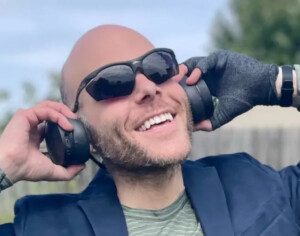 Brad Biren, Esq, LL.M, specializes in assisting individuals with special needs and diverse talents who are overcoming sudden adversity. He utilizes his inspiring tale of overcoming unexpected adversity to help motivate others in the community to pursue their goals.
Brad Biren, Esq, LL.M, specializes in assisting individuals with special needs and diverse talents who are overcoming sudden adversity. He utilizes his inspiring tale of overcoming unexpected adversity to help motivate others in the community to pursue their goals.
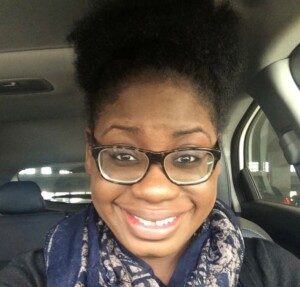 Victoria Jones is an educator and the founder of Curriculum & Culture. She is passionate about sharing her love of books with students and inspiring them to develop an authentic love.
Victoria Jones is an educator and the founder of Curriculum & Culture. She is passionate about sharing her love of books with students and inspiring them to develop an authentic love.
 Justin Haley Phillips (Haley) is an autistic writer, editor and all-around creator who lives her life according to the mantra that “stories will save the world.” She loves tea, travel, fun socks, baking and her fur babies. Haley’s debut self-help/inspirational book, “Blossoming in the Breach,” is on Amazon in both print and Kindle. facebook.com/groups/storieswillsavetheworld
Justin Haley Phillips (Haley) is an autistic writer, editor and all-around creator who lives her life according to the mantra that “stories will save the world.” She loves tea, travel, fun socks, baking and her fur babies. Haley’s debut self-help/inspirational book, “Blossoming in the Breach,” is on Amazon in both print and Kindle. facebook.com/groups/storieswillsavetheworld
 Marena Bernard is a fashion model. Her IG handle is @marena_bernard.
Marena Bernard is a fashion model. Her IG handle is @marena_bernard.
 Jason San Souci is an autistic drone scientist. He is a graduate of the USAF Academy with a master’s of engineering from the University of Colorado. His mission is to elevate the drone industry through thought leadership and neurodiversity advocacy.
Jason San Souci is an autistic drone scientist. He is a graduate of the USAF Academy with a master’s of engineering from the University of Colorado. His mission is to elevate the drone industry through thought leadership and neurodiversity advocacy.
 Jessica Medina is a licensed marriage and family therapist (#129383) who specializes in “geek therapy” and making therapy fun, engaging and a safe place to comfortably explore emotions. Her superpower is making geek and pop culture (e.g., Marvel, Disney, videogames) therapeutic. TikTok/Instagram: @happylilbrains
Jessica Medina is a licensed marriage and family therapist (#129383) who specializes in “geek therapy” and making therapy fun, engaging and a safe place to comfortably explore emotions. Her superpower is making geek and pop culture (e.g., Marvel, Disney, videogames) therapeutic. TikTok/Instagram: @happylilbrains
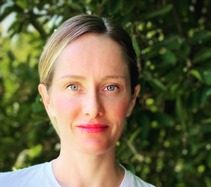 Clarissa Harwell, LCSW, has worked with a diverse range of clients for 15+ years including families experiencing homelessness, children who’ve experienced abuse and neglect, new parents, adults impacted by severe mental illness, and children and teens engaging in high-risk behaviors.
Clarissa Harwell, LCSW, has worked with a diverse range of clients for 15+ years including families experiencing homelessness, children who’ve experienced abuse and neglect, new parents, adults impacted by severe mental illness, and children and teens engaging in high-risk behaviors.
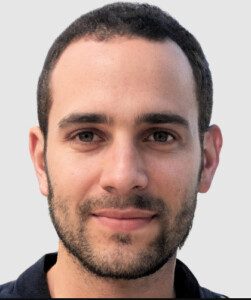 Sean Walsh is the founder and writer for pilotpassions.com, a source for students and aspiring pilots to be inspired to learn about the foundations of aviation and what it takes to become a pilot.
Sean Walsh is the founder and writer for pilotpassions.com, a source for students and aspiring pilots to be inspired to learn about the foundations of aviation and what it takes to become a pilot.
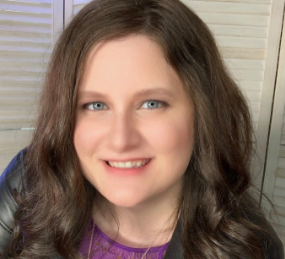 Jennifer Parr has always had a devoted obsession to art and creativity. Her ultimate goal is to help others discover their own creative side and find enjoyment through art and crafting.
Jennifer Parr has always had a devoted obsession to art and creativity. Her ultimate goal is to help others discover their own creative side and find enjoyment through art and crafting.
Maverick Dom Silvera is an autistic single parent who expresses her autism self-advocacy through writing.
Dr. Jessica Myszak, a psychologist who specializes in autism assessment for both children and adults, is the founder of Autistic Support Network. She sees clients in-person in the Chicago area and over telehealth in 31 states. Learn more about her practice at helpandhealingcenter.com.
Top image: Freepik.com, marymarkevich
